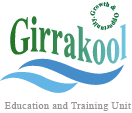1
OctoberWhen Thailand Rehab Grow Too Shortly, This is What Occurs
Introduction
 Alcohol cleansing is an essential process when you look at the journey of recovery for folks suffering liquor addiction. It is designed to get rid of toxins through the human body while handling withdrawal symptoms. This report explores the value of alcoholic beverages detox, the symptoms experienced during cleansing, while the practices utilized assuring a safe and effective detox procedure.
Alcohol cleansing is an essential process when you look at the journey of recovery for folks suffering liquor addiction. It is designed to get rid of toxins through the human body while handling withdrawal symptoms. This report explores the value of alcoholic beverages detox, the symptoms experienced during cleansing, while the practices utilized assuring a safe and effective detox procedure.
Need for Alcohol Detoxification
Alcoholic beverages detoxification plays a pivotal role in addiction recovery as a result of the real and mental reliance that develops with time. Chronic alcohol abuse causes alterations in brain chemistry, resulting in withdrawal signs when drinking is ceased. These signs range from tremors, anxiety, insomnia, nausea, as well as seizures. By undergoing detox, people can conquer the immediate real results of alcoholic beverages detachment, establishing the phase for lanna rehab further treatment and lasting recovery.
Signs Experienced During Alcohol Detox
During alcohol detox, people can experience a wide range of withdrawal signs that will differ in severity. Minor signs can sometimes include trembling, perspiring, and problems, while more serious cases can involve hallucinations, delirium, and seizures. The intensity and timeframe among these symptoms rely on different facets, including the amount and period of alcoholic abuse, specific health problems, and past detoxification experiences. It is critical to observe that these symptoms are deadly, highlighting the need of health-related supervision throughout the cleansing procedure.
Types of Alcohol Detoxification
You will find different methods and settings designed for liquor detoxification, and this can be categorized into outpatient, inpatient, and hospital-based cleansing services. Outpatient detox programs offer versatility, allowing people to obtain therapy while living home. But they truly are typically recommended for those with moderate detachment symptoms and a solid assistance system. Inpatient detox programs offer a controlled environment with 24/7 health care, ensuring instant awareness of any complications that'll arise. Hospital-based detox, alternatively, is suitable for folks with extreme detachment signs, needing a greater amount of medical intervention.
During detoxification, healthcare specialists may administer medications to alleviate detachment signs and minimize discomfort. Medications such as for example benzodiazepines, anticonvulsants, and anti-anxiety medications are commonly used to manage detachment symptoms efficiently. In addition, medical experts track vital indications, offer guidance services, and implement an extensive treatment plan to deal with the root factors behind liquor addiction.
Conclusion
Alcohol detox is a crucial action towards recovery, aiding individuals in handling detachment signs and reducing the risk of problems. It offers a safe and supervised environment for people to eradicate toxins from their bodies and prepares all of them for additional therapy modalities. But is vital to recognize that detoxification alone is not a total answer but instead the initial stage of a thorough treatment solution. After cleansing, people should really be promoted to engage in counseling, therapy, and support groups to deal with the emotional and personal components of liquor addiction. By recognizing the value of alcohol cleansing and offering comprehensive care, healthcare experts could offer people suffering alcoholic beverages addiction a higher chance at enduring data recovery.

